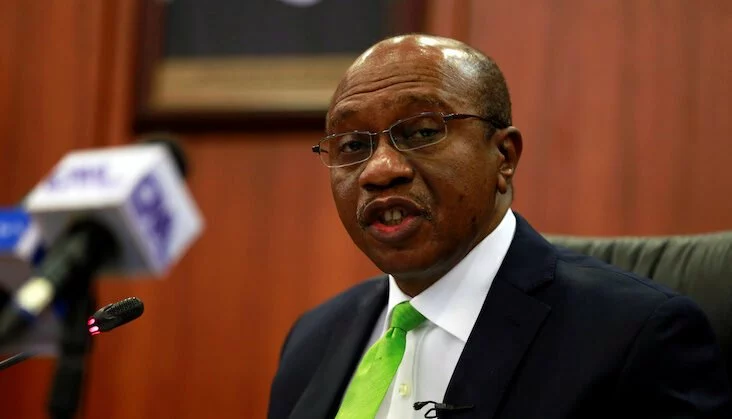The Monetary Policy Committee (MPC) last week rose from its 287 meeting raising benchmark interest rates for the third consecutive time this year to 15.5 per cent. This hawkish stance the Central Bank of Nigeria (CBN) says will continue as long as inflation does not abate in the county.
Inflation has consistently risen from 15.6 per cent in January this year to 20.52 per cent in August, driving the MPC to raise benchmark interest rate in May this year from 11.5 per cent to 13 per cent. It further raised it to 14 per cent at the July meeting before adopting a tighter stance in September.
Also, the Cash Reserve Requirement (CRR) for Deposit Money Banks (DMBs) was raised by 500bps to 32.5 per cent, the first hike since January 2020. However, the Asymmetric Corridor around the MPR and Liquidity Ratio (LR) was left unchanged at +100bps/-700bps and 30 per cent respectively.
The CBN Governor, Godwin Emefiele, rising from the meeting on Tuesday last week explained that the stance adopted by the apex bank is a time-tested monetary policy theory which has “shown that the one and easiest way to tame inflationary pressure is to raise rates and that is the most preferred option that have been adopted globally.
“You would recall that at the last meeting in July I was very clear in hinting that as long as we see inflation trending upwards, I cannot, and MPC cannot give any assurance that we would not continue to raise rates. We have seen inflation rates move very aggressively and that is the reason why we are following it up.
“If you fail to raise rates because you are afraid that raising rates would retard growth, whether you like it or not in the long run, not rising rates would still retard growth as long as inflation keeps going up. It is therefore imperative that you must raise rates in order to rein in inflation. Raising the rates is what would help you slow down the rate of inflation.
“If we don’t raise rates or remain mute, what will happen is that consumption and investment expenditure will be affected because the purchasing power of the citizens or the consumer will erode and completely possibly disable and eventually increase poverty.
“We have seen inflation in the last four months move so aggressively in Nigeria and it is difficult for us with all the data available, with all the research that has been conducted it is difficult for us not to go in a very aggressive way we decided to go today. This is the best option at this time. What I will say is, my answer is that I could not assure you that we will not raise rates as long as inflation continues to trend upwards.”
What does this mean for bank customers in the country? Analysts say it will have a bitter-sweet effect as the impact will be both negative and positive in nature for bank customers. For the good part, the increased rate will invariably mean increased interest on savings for customers.
Following the July MPC meeting, the CBN had reviewed the minimum interest payable on savings to 30 per cent of MPR in August 2022. This saw interest on savings go up from 1.4 per cent which was 10 per cent of the previous 14 per cent.
Thus banks were expected to increase interest rate on savings from 10 per cent of MPR to 30 per cent of MPR with customers earning up to 4.2 per cent which is 30 per cent of the 14 per cent MPR as against 1.4 per cent which was 10 per cent of the MPR.
However with the MPR increased to 15.5 per cent, customers will now be able to earn more on their savings with banks. Effectively, the interest on savings will now be 4.65 per cent which is 30 per cent of the new MPR f 15.5 per cent.
On the other hand, customers with loan obligations to banks will also have their loans repriced in line with the new rates and those seeking new loans will have to contend with higher interest. According to Head of Financial Institutions Ratings at Agusto&Co, Ayokunle Olubunmi, the higher MPR as well as the CRR will lower liquidity in the banking industry will causing the rate at which banks borrow amongst themselves to rise significantly.
Asides this, he said in the long run, lending rates in the banking industry is expected to rise to over 40 per cent as banks strive to make the most of the little liquidity that they have to lend out. This was corroborated by analysts at Parthian Securities who noted that the hawkish stance and determination of the CBN to mop up liquidity from the system will have both negative and positive impact on bank customers.
The analysts note that the bank customer will in the coming day have to deal with higher borrowing cost due to the pass-through effect of higher interest rates. “On the other hand, bank customers might see higher savings rate in the bank.”





